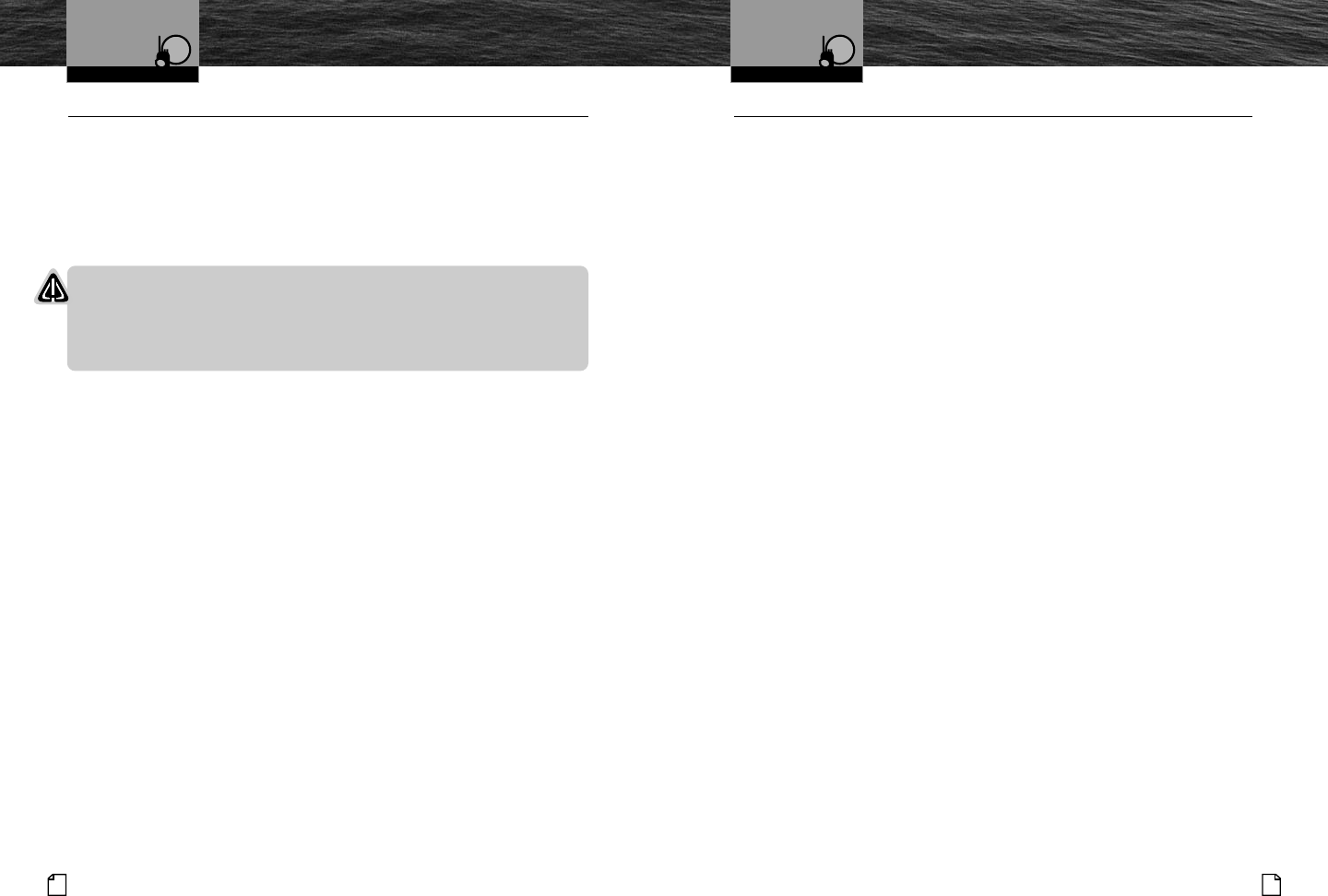
Intro Operation Customer
A
ssistance
Warranty
Notice
Main Icons
S
econdary Icons
Caution Warning
Installation
Customer
Assistance
IInnttrroodduuccttiioonn
1133NNootthhiinngg
Comes Close to a Cobra
®
1122
EEnngglliisshh
Intro Operation Customer
A
ssistance
Warranty
Notice
Main Icons
S
econdary Icons
Caution Warning
Installation
Customer
Assistance
IInnttrroodduuccttiioonn
Radiotelephone Calls
Emergency Messages and
Distress Procedure
Radiotelephone Calls
•
Boaters may make and receive radiotelephone calls to and from any number on the
telephone network by using the services of public coast stations. Calls can be made —
for a fee — between your radio and telephones on land, sea and in the air. See pages
20 through 27 for the public correspondence (marine operator) channels.
If you plan to use these services, consider registering with the operator of the
public coast station that you plan to work through. These services can provide
you with detailed information and procedures to follow.
NOTICE
You may disclose privileged information during a radiotelephone call.
Keep in mind that your transmission is NOT private, as it is on a regular
telephone. Both sides of the conversation are being broadcast and can be
heard by anyone who has a radio and tunes to the channel you are using.
Emergency Messages and Distress Procedure
•
The ability to summon assistance in an emergency is the primary reason
to have a VHF marine radio. The marine environment can be unforgiving,
and what may initially be a minor problem can rapidly develop into a
situation beyond your control.
The Coast Guard monitors Channel 16, responds to all distress calls,
and coordinates all search and rescue efforts. Depending on the availability
of other capable vessels or commercial assistance operators in your vicinity,
Coast Guard or Coast Guard Auxiliary craft may be dispatched.
In any event, communicate with the Coast Guard as soon as you experience
difficulties and before your situation becomes an emergency. Use the emergency
message procedures only after your situation has become grave or you are faced
with a sudden danger threatening life or property and requiring immediate help. Use
Channel 16 to communicate your emergency message. Make sure you transmit on
high power. If you are merely out of gas, do not send an emergency message. Drop
your anchor and call a friend or marina to bring the fuel you need or to give you a
tow.
Intro Operation Customer
Assistance
Warranty
N
otice
M
ain Icons
S
econdary Icons
C
aution Warning
Installation
Customer
A
ssistance
VHF Marine Radio Protocols
Intro Operation Customer
Assistance
Warranty
N
otice
M
ain Icons
S
econdary Icons
C
aution Warning
Installation
Customer
A
ssistance
VHF Marine Radio Protocols
I
ntro Operation Customer
Assistance
W
arranty
N
otice
Main Icons
Secondary Icons
C
aution Warning
Installation
C
ustomer
Assistance


















